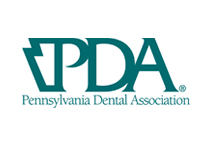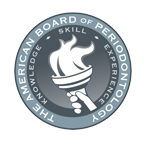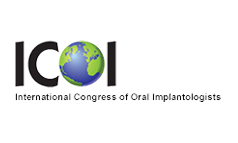Gum disease is generally used as a catch-all term to describe any instance of gum tissue becoming inflamed or infected. However, this disease can come in varying degrees of severity, and when it escalates,, patients require more extensive treatments and sometimes more invasive techniques to address the problem. Extreme cases of periodontal disease require osseous surgery.
Recent studies have shown a correlation with treatment of periodontal disease and overall, systemic health improvements. If you suffer from diabetes, it is increasingly important to have your periodontal condition evaluated. Undergoing periodontal treatment may decrease your Hba1C and improve your diabetic status. Talk to your local Langhorne periodontist immediately if you believe you can benefit from gum and bone surgery.
What Does the Surgery Entail?
Initially, your periodontist in Langhorne will likely try scaling and root planing to debride the pockets and eliminate as much build up above and below the gum line as possible.. After a period of healing and proper home care, your pockets will be re-evaluated. If deep pockets persist, then it will be recommended that you undergo osseous surgery.
You will be given a local anesthetic prior to the procedure. The periodontal expert will then make an incision within your gum tissue to gain access to the tooth root and the supporting bone. Tartar, plaque and infected tissue that was once hidden from view will be removed. Once the infection is debrided, the periodontist will reposition the gum tissue close to the bone with sutures. Some times a packing material, or a “gum band-aid” is placed around the treated teeth to support the
What Are the Benefits of the Surgery?
The removal of infection is the primary benefit of osseous surgery. Another surgical goal is to remove and reshape the infected bone, and to re-create healthy bony contours around teeth. Some of the other things you can expect to happen after the surgery include:
- Healthier gum and bone tissue
- Better taste
- Improved breath and possible resolution of halitosis
- Easier time flossing and brushing your teeth at home
- Decreased in systemic inflammation – sometimes
What Will You Need to Do After Surgery?
Similarly to other surgical procedures, you will be provided with aftercare instructions by your periodontist. You should take care to follow these instructions carefully to have successful healing.
You will most likely be prescribed an antibiotic medication, something to ease any possible post-operative discomfort, and an antimicrobial oral rinse It is recommended to take all medications as directed. Sutures placed to secure the gums, will either dissolve on their own, or will be removed in 7-10 days after the surgery. Your periodontist will recommend a follow-up appointment in a several months to evaluate your your gum health.
BEST PERIODONTIST SERVING BUCKS COUNTY, LOCATED IN LANGHORNE, CLOSE PROXIMITY TO NEWTOWN, YARDLEY, LEVITTOWN, BENSALEM, HOLLAND & SURROUNDING
Even if you only notice a single symptom of gum disease in your mouth, you should still see a professional immediately. You may only need scaling and root planing if the disease is caught early enough. Contact Premier Periodontics & Implant Dentistry when you start wondering, “Where can I find a great periodontist near me?”








